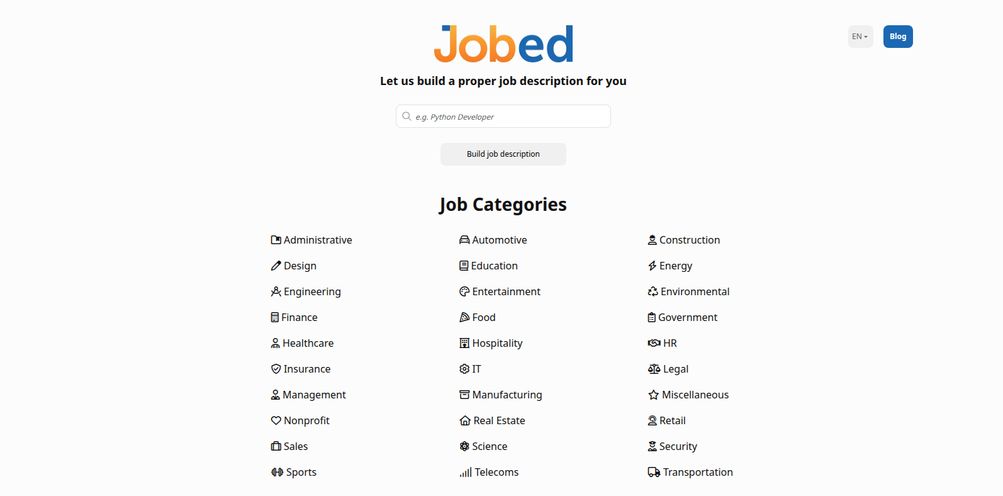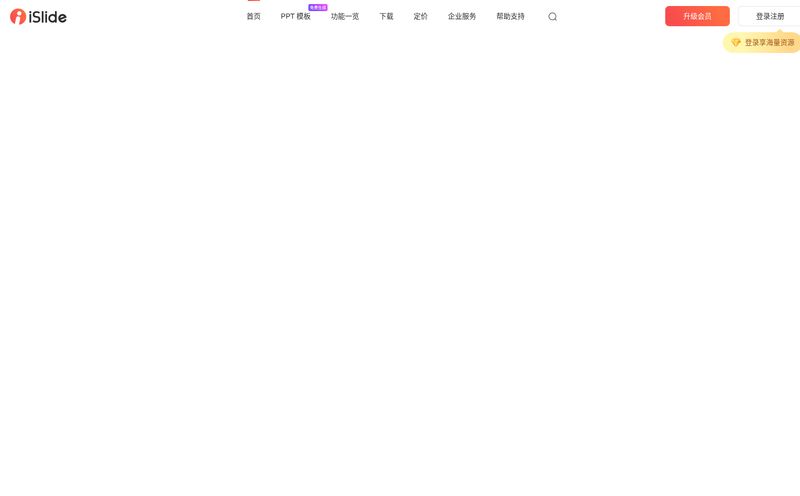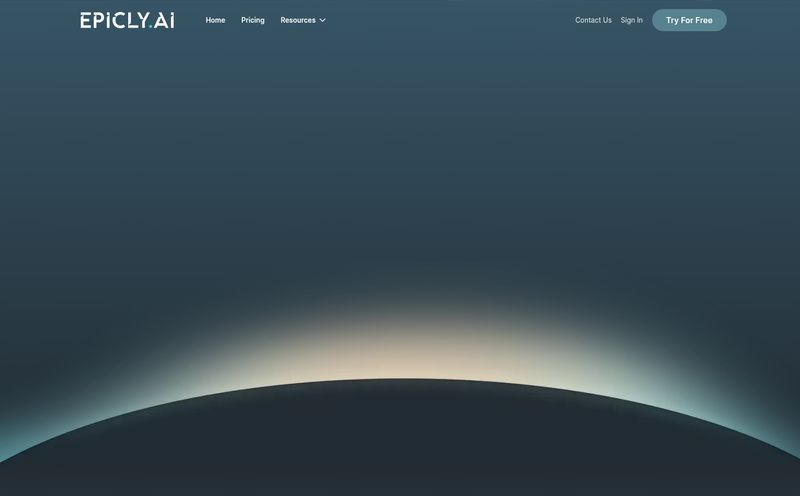I’ve always been a bit of a Jekyll-and-Hyde journaler. For weeks, I'll be completely dedicated, filling pages with my scrawled thoughts, worries, and the occasional brilliant idea. Then, life gets in the way. The notebook gathers dust, and the habit fades. I’m sure you know the feeling. The desire for self-reflection is there, but the activation energy to actually sit down and write? Not so much.
So, when I first heard whispers of an app called Journalie, my ears perked up. The pitch was simple, almost elegant: an AI-powered journaling app that turns your spoken words into beautiful, insightful journal pages. It sounded like the perfect solution for the modern, time-crunched, and slightly lazy journaler. Me, basically.
But here’s where the story gets weird. When I went to find it, I hit a wall. A big, fat, 404 wall. The website was gone. Poof. It felt less like a product launch and more like a digital ghost story. And that, of course, just made me want to know more.
What Exactly is Journalie Supposed to Be?
Before it vanished into the digital ether, the concept of Journalie was floating around the usual tech circles. It wasn't just another note-taking app. The idea was far more ambitious. You talk to it. You tell it about your day—the highs, the lows, the funny thing your coworker said, the frustrating traffic jam. You just… speak.
Then, the AI steps in. It’s meant to act as a kind of personal biographer who's also a part-time therapist. It transcribes your story, but it doesn't stop there. It analyzes what you've said to generate a unique, visual journal page. More importantly, it helps you discover the underlying emotions in your own stories. The things you might not even notice yourself.

Visit Journalie
The Promise of Voice-to-Text Journaling
Let's be honest, staring at a blank page can be intimidating. It's the writer's oldest enemy. But talking? Talking is easy. It’s natural. There’s a raw, unfiltered quality to speaking your thoughts aloud that typing can sometimes sterilize. The idea of capturing that raw honesty without the friction of typing is, for me, a game-changer.
Think about it. You could be on your commute, walking the dog, or making dinner, and just record a quick five-minute entry. No need to stop what you're doing. This removes the biggest barrier to consistent journaling: having to make time for it. It slots right into the cracks of your day.
Unpacking The Features: Your Personal AI Chronicler
Based on the breadcrumbs of information I could find, Journalie was built on a few really interesting pillars.
Emotion Discovery is the Real Gem
This is the part that truly caught my attention. It’s one thing to record what happened; it’s another to understand how you felt about it. The app's AI was designed to pick up on emotional cues in your language and highlight them for you. Imagine finishing a rant about your day and having the app gently point out, “It seems like you felt a lot of frustration, but also a sense of accomplishment.” That kind of reflection can be incredibly powerful for self-awareness and mental wellness. It's less of a diary and more of a mirror.
The Calendar View: A Mood Board for Your Life
Another clever feature was the calendar-based archive. Every story you record is saved to the day it happened. At a glance, you can see your dominant emotions for the week or month. It’s like a Fitbit for your feelings. You could start to see patterns you'd never noticed before. Maybe Mondays are consistently stressful, or perhaps you’re happiest on the days you take a walk. This data, over time, is invaluable. It’s your own personal emotional weather report.
Privacy - To Share or Not to Share?
Journalie supposedly offered options to keep your entries completely private or share them with friends. Now, this is where my professional skepticism kicks in. Handing over your voice data—your most intimate, personal stories—to an AI is a big deal. The potential for privacy issues is real. While the option for privacy is great, I’d want to read that privacy policy with a fine-tooth comb. Assuming, you know, I could find it.
So, Where Did it Go? The 404 Mystery
This brings us back to the central puzzle. Why is Journalie so hard to find? A search for its homepage leads to a stark “404 Not Found” error. There's no pricing page, no official blog, no press kit. It's a digital dead end.
What does this mean? There are a few possibilities:
- It's in a super-secret closed beta. Maybe it’s only available to a select group of testers before a public launch.
- It was a project that didn't take off. Ideas are a dime a dozen in the tech world. It’s possible the project lost funding or the developers moved on.
- It's a regional app. Perhaps it launched in a specific country and hasn't expanded yet.
Whatever the reason, the lack of information is frustrating. The concept is so strong, but the execution, or at least its public-facing side, is a total enigma.
The Pros and Cons (Based on What We Know)
Even as a ghost, we can weigh the theoretical pros and cons of an app like Journalie.
On one hand, the advantages are clear. It's incredibly easy to use (just talk!), the AI-generated pages sound amazing, and the emotion discovery tool could be a massive help for personal growth. The privacy options, in theory, put the user in control.
However, the downsides are just as important to consider. Relying solely on AI could strip some of the personal touch and messy creativity that makes traditional journaling so cathartic. And I'll say it again: the privacy concerns with voice data are significant. You're not just giving an app your words; you're giving it your voice, your tone, your everything. That requires a huge amount of trust. And right now, it's hard to trust something you can't even find.
Is an AI Journaling App Right for You?
The mystery of Journalie aside, the question remains: is this type of tool a good fit for you? If you're someone who has always wanted to journal but struggles with the blank page or finding the time, then yes, absolutely. A voice-powered, AI-driven app could be the key to finally building a consistent self-reflection habit. It’s perfect for the person who is more of a talker than a writer.
It's not about replacing the old pen and paper. I don't think anything ever will. It's about providing a new tool for a different kind of moment, for a different kind of person. It's an evolution, not a replacement.
A Promising Idea Waiting in the Wings
In the end, Journalie is a fascinating case study. It represents a brilliant, forward-thinking idea about how AI can genuinely help us understand ourselves better. It’s a tool I genuinely want to try. But for now, it remains a ghost in the machine, a 404 page on the internet superhighway.
Maybe one day it will emerge from the shadows. Until then, the search continues. The idea is too good to just let it disappear without a trace, right?
Frequently Asked Questions
- What is the Journalie app?
- Journalie is conceived as an AI-powered journaling application. Its main function is to take users' spoken voice entries, transcribe them, and use artificial intelligence to generate unique journal pages while also identifying and tracking the user's emotions over time.
- How does Journalie's AI work for emotion discovery?
- The AI is designed to analyze the user's language, word choice, and tone from their voice recordings to detect underlying emotions. It then presents this analysis back to the user, helping them gain deeper insight into their own feelings and experiences.
- Is Journalie a free app?
- It's currently impossible to say. At the time of this writing, there is no public information available about Journalie's pricing model, as the official website and any related product pages are not accessible.
- Are AI journaling apps safe to use?
- This is a critical question. While many apps have robust security, you are sharing very personal data. It’s vital to choose apps from reputable developers and to always read the privacy policy to understand how your data (especially voice data) is stored, used, and protected.
- What are some good alternatives to Journalie?
- Since Journalie is currently unavailable, you might want to check out other popular journaling and mood-tracking apps. Some great alternatives include Daylio for quick mood logging, Reflectly which also uses AI prompts, and Stoic for a more guided, philosophical approach to journaling.
Reference and Sources
Information for this article was gathered from publicly available data snippets and descriptions of the Journalie app concept. The primary website and product pages were inaccessible (returning a 404 error) during the research period for this article.
- For more on AI in mental wellness, see articles from sources like Forbes Health on the topic.
- Alternative apps mentioned: Daylio, Reflectly, Stoic.



